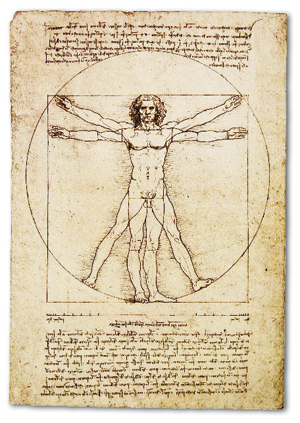Low Testosterone and Testosterone Replacement Therapy

Dr. Robert Brannigan is an Associate Professor of Urology at Northwestern University’s Feinberg School of Medicine. He specializes in male infertility at Northwestern Memorial Hospital in Chicago, Illinois. Betsy Haberl is the editor of QUEST.
BH: Dr. Brannigan, many people associate testosterone with sexual function and muscle building. Is this an accurate understanding?
RB: Our popular culture has pegged testosterone as an agent to “supercharge” male sexual function and athletic performance. While testosterone is involved in stimulating a man’s libido and supporting erectile function, it also has many other roles. For example, it affects mood, energy level, skin health, and bone density. While low testosterone can result in abnormally low libido and erectile dysfunction, it can also lead to broader problems such as an increase in fat mass, especially visceral (“belly”) fat. We know that men with increased visceral fat are at increased risk for many serious health problems, including coronary heart disease.

I’d like to point out that several studies have shown the interrelatedness of low testosterone and future health. Men who are otherwise healthy but have low testosterone are at increased risk for the future development of diabetes and other features of metabolic syndrome (high blood pressure, obesity, and abnormally high cholesterol and triglyceride levels).

“When I think about testosterone and men’s health, I think about Leonardo DaVinci’s Vitruvian Man.”
–Dr. Robert Brannigan
BH: Is low testosterone the reason for the increased risk?
RB: We do not know. However, we do know that low testosterone can be the “canary in the coal mine.” In other words, low testosterone may be the first signal that other health problems might lie ahead. Studies are currently underway to determine if treating low testosterone can reduce the risk of developing these other problems.
BH: How would a man know if he has low testosterone?
RB: The most common symptoms include decreased energy, diminished mood, low libido, erectile dysfunction and a decline in muscle mass.
BH: If a man experiences these symptoms, what should he do?
RB: He shouldn’t automatically attribute these changes to “old age.” He should discuss his symptoms with his doctor.
BH: How is low testosterone diagnosed?
RB: A diagnosis of low testosterone requires both the presence of symptoms and an abnormally low testosterone blood test result. A patient needs to have low testosterone levels documented on two separate occasions. Testosterone levels fluctuate throughout the day, with peak levels occurring in the morning. So, we recommend morning testosterone blood testing when possible.
BH: What is the difference between testing the blood for so-called free and total testosterone? If a man wants to know whether he needs to have supplemental testosterone, is it okay just to measure the total testosterone, or should he measure both?
RB: Several different testosterone blood tests are available, including “free testosterone,” “total testosterone,” and “bioavailable testosterone” tests. The “free” testosterone molecules are the ones that are able to act in the body. Unfortunately, most available “free testosterone” tests provide only an estimate, and not a true measure of free testosterone levels. For this reason, doctors typically use either “total testosterone” or “bioavailable testosterone” tests.
BH: Do men have a choice when selecting treatment?
RB: Yes, there are topical gels, injectable intramuscular testosterone, testosterone pellets that are inserted just beneath the skin in the buttock area every 4-6 months, and patches applied externally to the skin or orally along the gumline.
After starting treatment, symptoms should improve quickly—typically, within a few days.
BH: Ideally, how long would a man continue treatment?
RB: There is no cure for low testosterone, so testosterone therapy is continued as long as a man wishes to derive the benefits of therapy. This is called “maintenance therapy,” which means that a man can stop the therapy any time he wants, but his testosterone levels will usually return to a low level. Most men choose to stay on testosterone therapy for the long term.
BH: Even with maintenance therapy, is it possible to take extra testosterone for too long?
RB: Some men have normal levels and no symptoms, but take the medication illicitly. This abuse of testosterone can cause problems, including testicular shrinkage and infertility. Over time, some of these men will have so much loss of testicular size that they will ultimately need testosterone therapy to achieve normal levels. These men can unknowingly create a lifelong problem for themselves when there was no problem to begin with.
“The aim of testosterone replacement therapy is simply to restore a patient’s testosterone levels to the normal range and improve the associated signs and symptoms. The treatments available for low testosterone are usually quite effective.”
BH: Is there a downside to testosterone replacement therapy?
RB: There are other risks to taking extra testosterone. For instance, some men can develop fluid retention and rapidly gain fluid weight. In obese men and men whose levels rise too high, the testosterone can be converted to a female hormone, which can result in breast enlargement. Other possible side effects include a rise in red blood cell count, oily skin and acne. There is also a possibility of infertility.
BH: Does testosterone replacement therapy affect the prostate?
RB: Generally, a man with low testosterone will have a smaller prostate size and a lower PSA value. When a man diagnosed with low testosterone takes extra testosterone, his prostate size and PSA usually rise. These rises in prostate size and PSA level generally do not exceed the values for men with normal testosterone levels.
BH: Could taking extra testosterone make prostate cancer come back?
RB: Some men who have had prostate cancer surgery suffer from low testosterone. Depending on the circumstances of the case, it is usually safe for some of these men to have testosterone replacement therapy. This is controversial, as some physicians are reluctant to recommend testosterone replacement therapy for patients with a history of prostate cancer.*
*See Q&A about testosterone replacement therapy on page 4.











